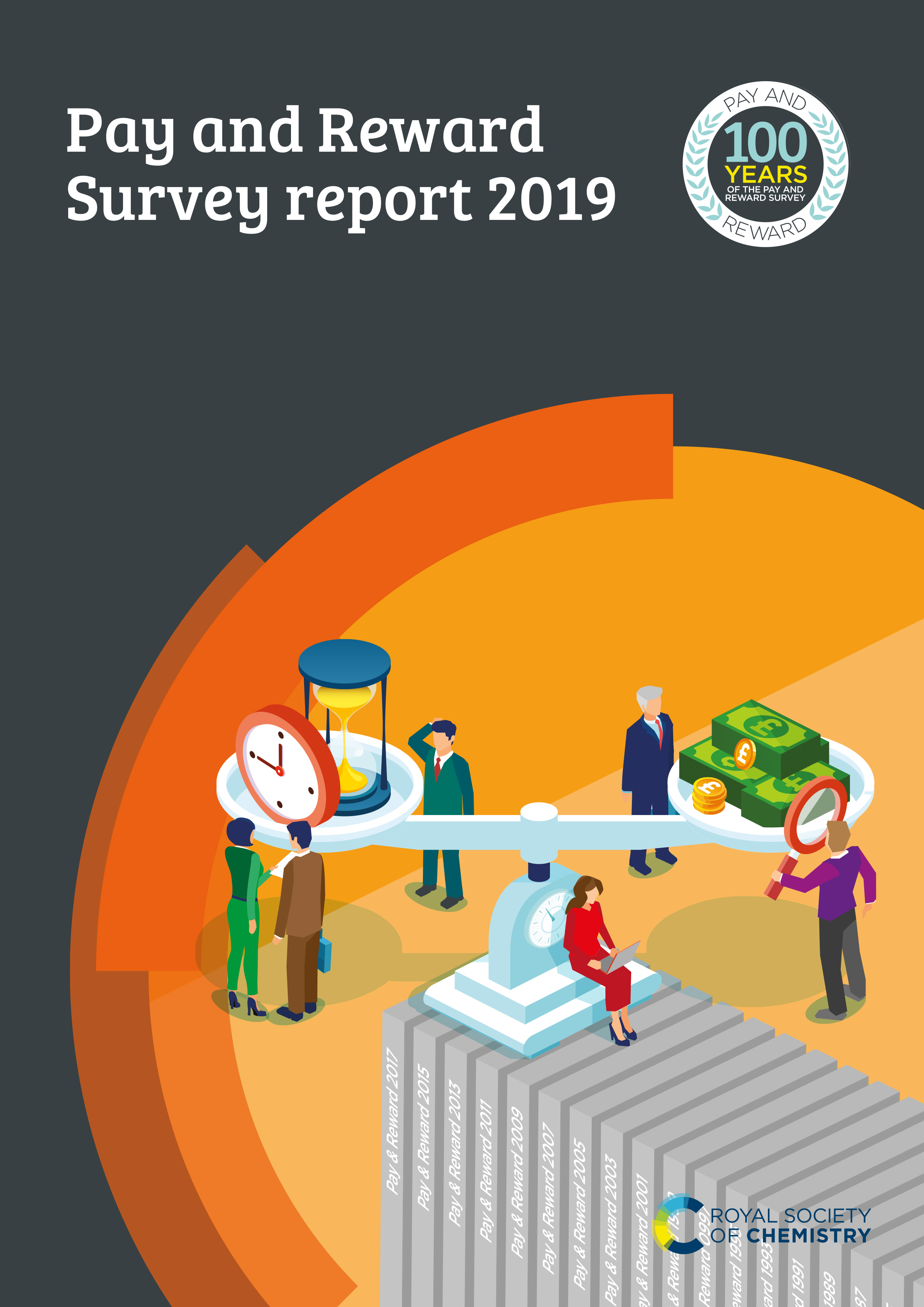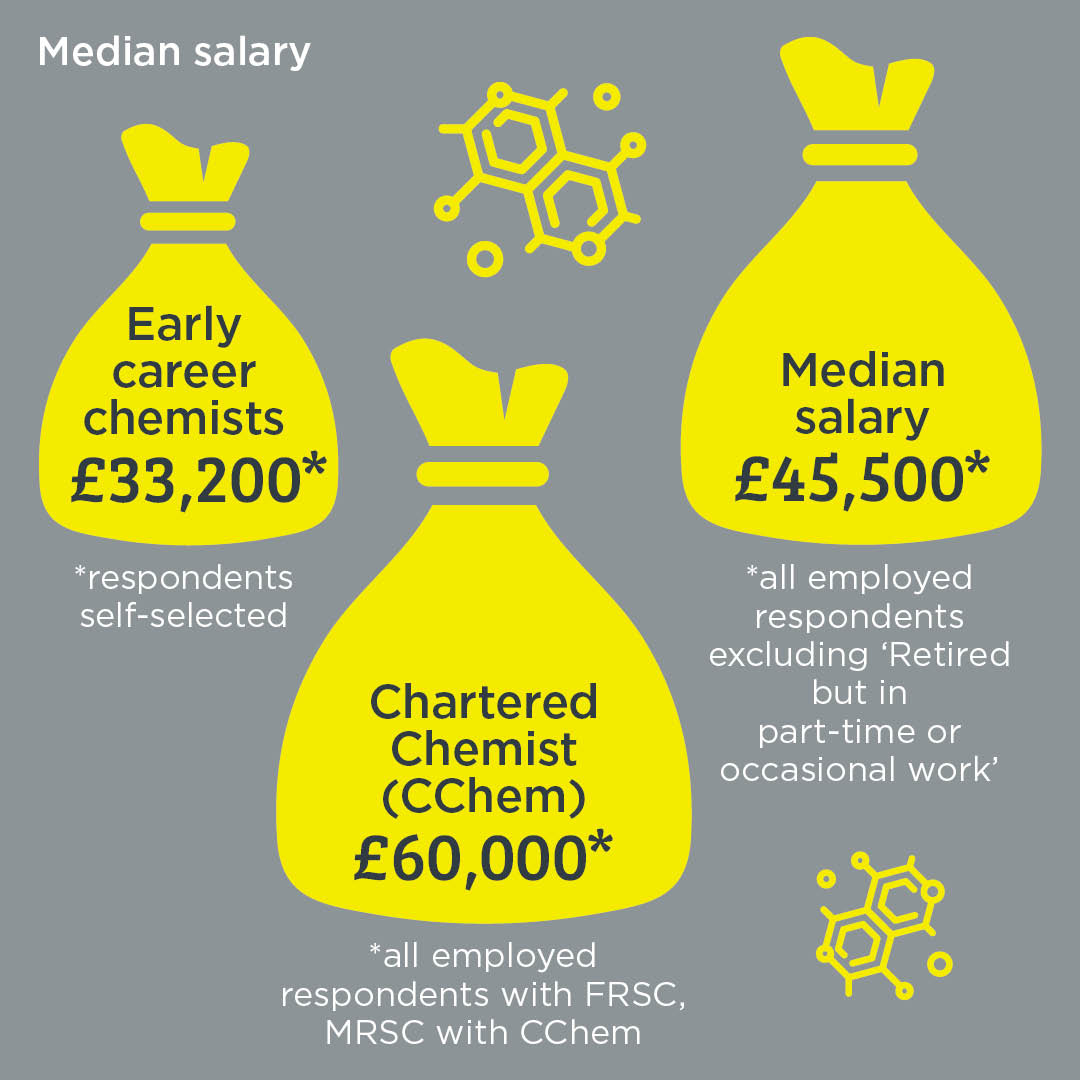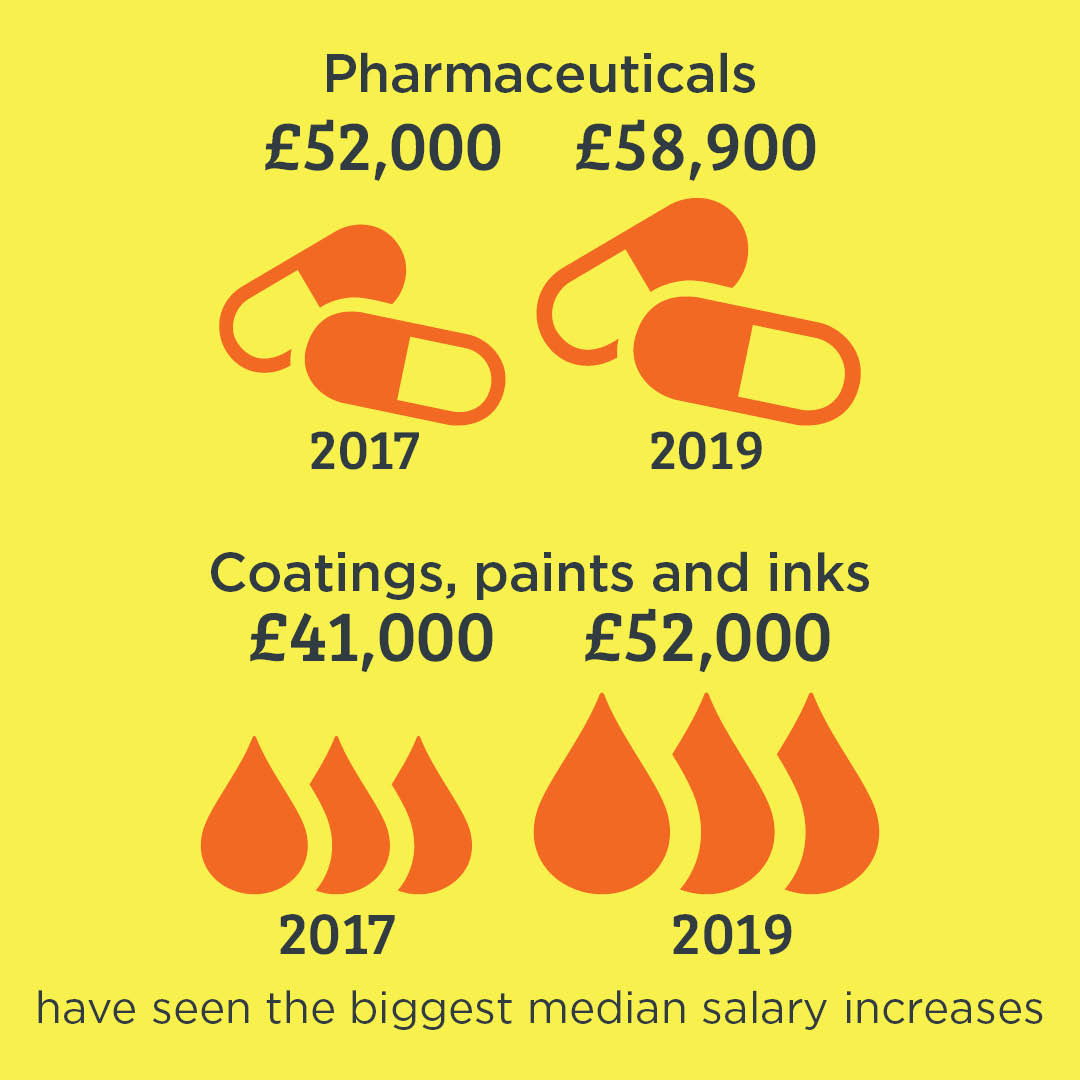Pay and reward survey report 2019

Career breaks, key skills and the gender pay gap – the results of our 43rd Pay and Reward survey are in.
Every two years, we ask Royal Society of Chemistry members to share their experience of salary, pension and benefits in their field of the chemical sciences. We also ask about career breaks, workplace experiences and barriers to skills development, as well as key motivators, skills needed, and career progression.
Members can use our report to plan their careers and to benchmark their own salaries and benefits, as well as those of their employees.
Over 6000 of our members participated in the survey this year, from across a range of careers in the chemical sciences – including academia, consultancy, industry, government and teaching.
Chief executive of the Royal Society of Chemistry, Robert Parker, said: "I am delighted that we had such an excellent response to this year’s survey, which also marks the 100th anniversary since the first remuneration report was published by the Royal Institute of Chemistry. I would like to thank all members who contributed to this centenary edition. The quality and breadth of the information we are able to share is entirely due to your involvement. The respondents are representative of our whole membership, so this survey can continue to build on its reputation as a trusted and authoritative career planning resource for members and for the Royal Society of Chemistry to use in its advocacy work."
The headlines
Rise in salaries
One of the key findings from the survey is an increase in salaries – despite slower industry growth. The pharmaceuticals industry, along with the coatings, paints and inks industry, saw the largest increase in salary. Median teacher salaries have also increased significantly – from £35,000 in 2017 to £40,000 in 2019 – after a drop between 2015 and 2017.
The gender pay gap remains, although it is at its smallest since the survey began, with women now earning 78% of the salary of men on average. The gap also widens with age.


Career breaks
36% of female respondents said they had taken a career break, in comparison to only 10% of male respondents. Women were also more likely to say they felt their career prospects were worse following a career break. This is likely to be linked to the type of career break taken – a career break for education, study or research was perceived to have a positive impact on career, whilst a break for maternity, paternity or adoption leave was perceived to have a negative impact.
International data
Our pay and rewards survey includes our members outside the UK, which has allowed us to draw some international comparisons, although sample sizes are small. Chemical scientists in the USA and Canada earned a significantly higher salary on average than their counterparts in other locations – although this came with an increased degree of responsibility in their role.
Inclusion and diversity
A high proportion of both men and women agree that they feel able to be themselves at work, although there is still a great deal of room for improvement in this area. In addition, a significantly lower proportion of women than men feel that their working environment is diverse and inclusive, or that there are equal opportunities for all employees where they work.
Passion as a motivator
Both men and women said that their primary motivation for work was being passionate about what they were doing, followed by a preference for work that impacts society positively. Work–life balance was another top motivator. Financial recognition, on the other hand, was only deemed important by 10% of women and 16% of men.
Leadership is a key skill
We asked respondents what skills they felt they needed in order to advance their careers, and identified leadership as a key skill – chosen by 56% of respondents. Communication and networking followed closely behind. We also found that skill needs change as responsibility increases, and at different career stages. Technical skills and project management were deemed to be important at earlier career stages, with influencing skills becoming more important as careers progress.


How we can help
Services
This year we have linked within the report to relevant services that we offer. For example within the job satisfaction section you can find information about our mentoring scheme, our careers team, and volunteering opportunities.
Webinars
During November and December we held a series of ‘Develop your career’ webinars using insights from the Pay and Reward survey. Catch up on them now using the links below:
Having effective conversations around your employment contract
How employers can use the pay and reward report
Access to our archive
New this year, our members now have access to our Pay and Reward Collection – a 100 year archive where you can search our Pay and Reward surveys all the way back to the first report in 1919.